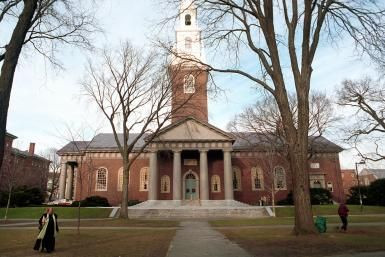Coronavirus Pandemic Costing Colleges, Universities Billions In Lost Revenue

KEY POINTS
- Schools were forced to send students home just weeks into the spring semester and most are expected to limit the number of students on campus in the fall
- Rutgers University is projecting a $260 million deficit for the coming school year atop $183 million in losses for the 2019-20 school year
- The situation is exacerbated by government limits on foreign students
Colleges and universities across the U.S. braced for billions of dollars in losses as they prepared for fall classes, with foreign students banned, rising freshmen contemplating gap years and fears of an intensifying coronavirus pandemic.
Congress provided $7.6 billion in federal stimulus funds as part of the CARES Act, but schools say losses will exceed that figure. And the estimate could grow if an explosion in coronavirus cases forces campuses to close again.
Rutgers University, which serves more than 71,000 students, refunded $50 million to students last semester for unused campus services because they were sent home to stem the spread of the pandemic. It also lost $60 million from canceled surgical procedures and $73 million in state appropriations. The public university system is projecting a $260 million deficit for the coming school year and declared a fiscal emergency.
Rutgers is not alone. Schools across the country are cutting way back on the number of students who will be allowed on campus, offering buyouts, and assessing layoffs and pay and program cuts to trim budgets.
The University of Iowa, which serves some 32,000 students, was expected to eliminate an estimated 15 instructional track faculty positions as it grapples with its budget.
“The impact from the pandemic will be different for each area of the university, so it’s important that these decisions be made at a local level,” Anne Basset, UI's director of media relations, told the Iowa City Press-Citizen in an email. "Any decisions made are not a reflection on an individual employee or their quality of work, and the university is disappointed to be in this position.”
Notre Dame, a Catholic university with 8,600 students in South Bend, Indiana, projected a more than $100 million loss for the 2020-21 school year. It returned $22 million to students for room and board fees for the spring semester, contributing to a $44 million loss for the current fiscal year.
“These financial challenges are not limited to fiscal year 2021. We anticipate continuing impacts on our budget for the foreseeable future,” the university said in a letter sent to staff, faculty and students last month.
Private schools in Wisconsin are estimating $245 million in losses this year – last semester and next – and are bracing for a drop in enrollment.
“And being tuition-dependent, if there's an enrollment drop of any significance at all, that can deeply affect our colleges ability to operate,” Rolf Wegenke, president of the Wisconsin Association of Independent Colleges and Universities, told Wisconsin Public Radio.
Harvard announced Tuesday it would allow just 40% of undergrads back on campus with all classes available online. The university projected a $750 million revenue shortfall for fiscal 2021, atop $415 million for the current fiscal year.
A survey by Art & Science Group, which helps colleges and universities position themselves, indicated 16% of incoming college freshmen were considering a gap year, with an additional 17% saying they likely would not start college until spring.
The administration has been pushing schools to reopen, but at the same time has made it difficult for them to succeed by blocking Chinese and other foreign students, who make up 5.5% of the student population and pay full tuition.
U.S. Immigration and Customs Enforcement on Tuesday issued an order banning foreign students who were attending schools delivering all their classes online, an action former Secretary of State Hillary Clinton labeled cruel.
This move is cruel, unnecessary, and counterproductive to America’s long-term interests. A Trump administration special. https://t.co/Be3jFF4urq
— Hillary Clinton (@HillaryClinton) July 7, 2020
The Institute of International Education estimated in May that 88% of schools expect student enrollment to fall, with 70% anticipating a drop in international registrations.
“This guidance undermines the thoughtful approach taken on behalf of students by so many institutions, including Harvard, to plan for continuing academic programs while balancing the health and safety challenges of the global pandemic,” Harvard President Lawrence Bacow said in a statement.
Earlier, the Department of Education released a rule that would keep coronavirus relief funds from foreign students, forcing universities to dip into their coffers to help students who were stranded by the pandemic, further exacerbating shortfalls.
“It's clear the CARES Act was written to help Americans recover from the coronavirus pandemic,” Secretary of Education Betsy DeVos said in a press release. “U.S. taxpayers have long supported U.S. students pursuing higher education, and this rule simply ensures the continuity of that well-established policy.”
© Copyright IBTimes 2025. All rights reserved.






















